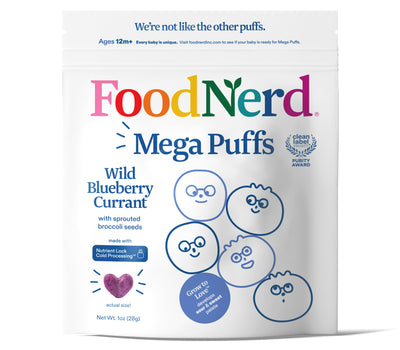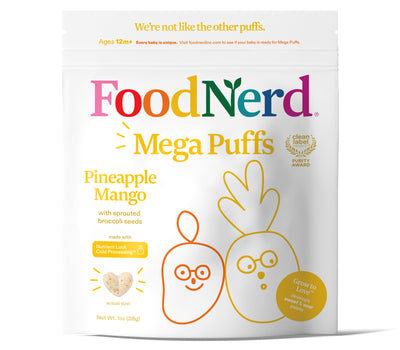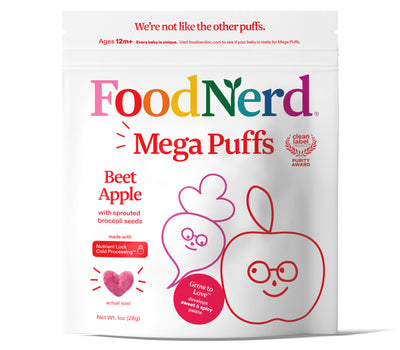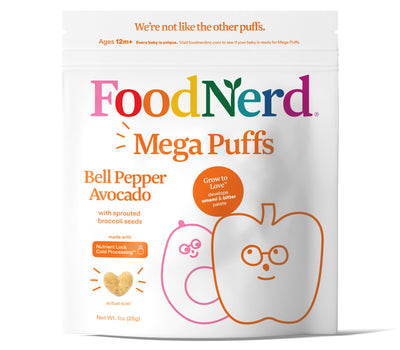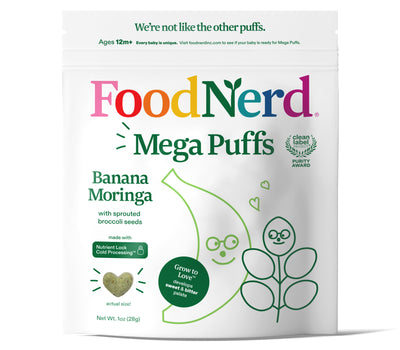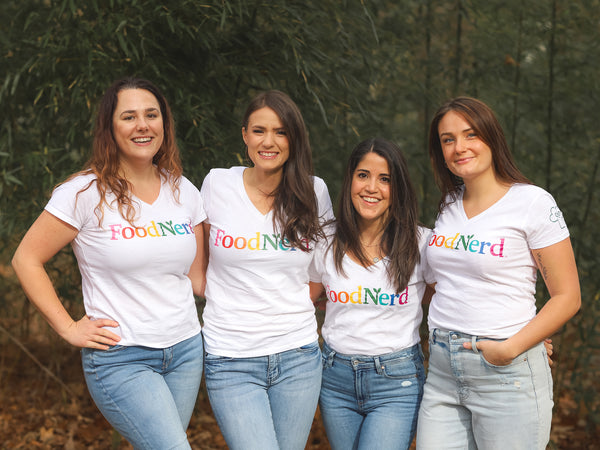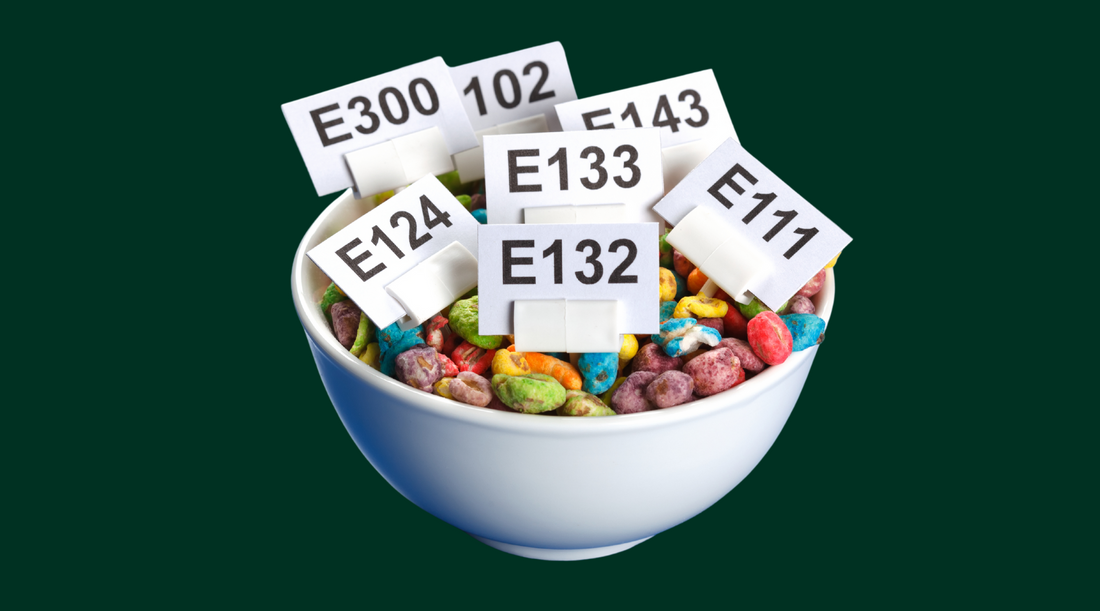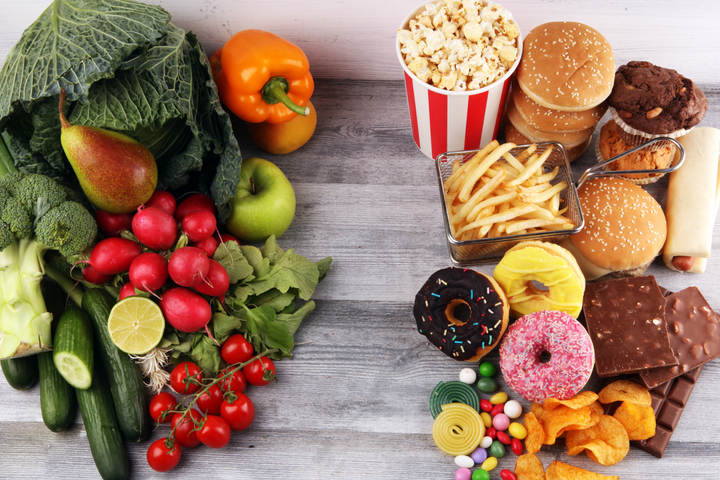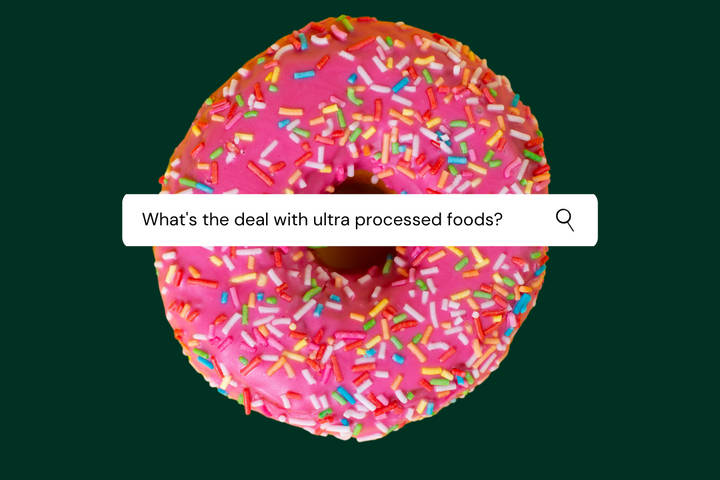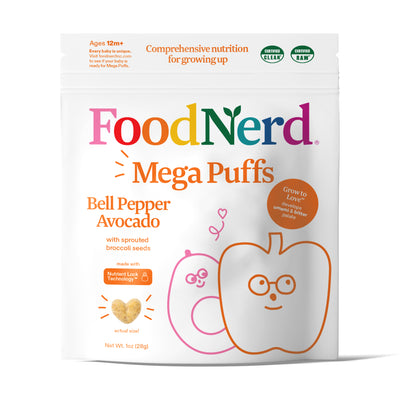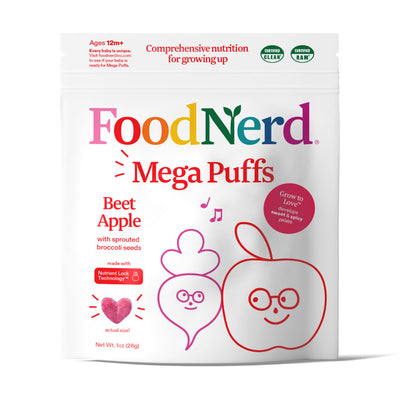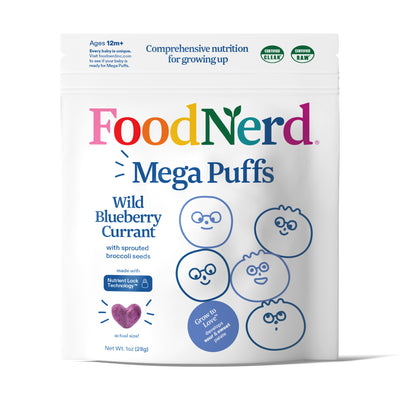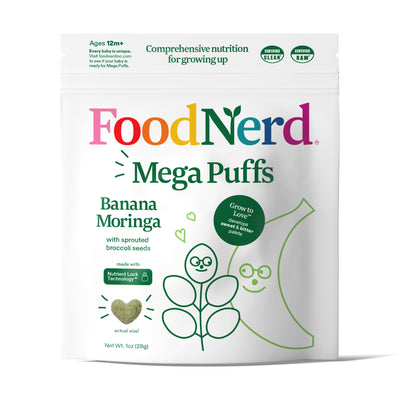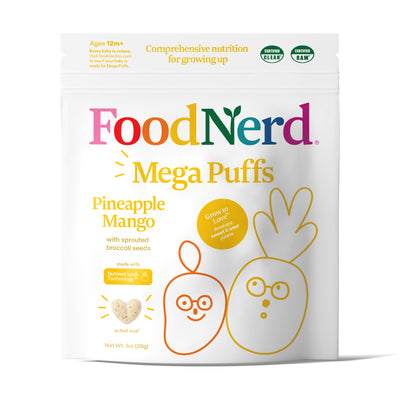Key highlights from our first blog on food additives:
- Food manufacturers use food additives to extend the shelf-life of their products or to improve taste or texture.
- There are over 3,000 food additives that are purposely put into the food that we eat.
- It is estimated that the average person consumes 8 - 10lbs of food additives every year and, for some, this amount may be even higher.
Unless you only eat whole, unprocessed food that comes directly from mother nature, you are likely eating many different food additives throughout the day.
Let’s be real, life is busy! Of course, we may have to resort to convenient, processed foods to get us through the work week. We are not saying that you should never eat another food additive ever again—that would not be realistic! What we can do is start to educate ourselves on the food additives that we should be avoiding and steer clear of foods that contain them.
Food additives aren’t necessarily all bad, some food additives ensure that our food remains safe from spoilage, which helps keep us safe from foodborne illnesses. BUT… Many of these additives may be more harmful to our health than helpful.

How do Food Additives Affect our Health?
- Food additives may harm our gut microbiome:
- What: Emulsifiers - Added to processed food to improve texture and extend shelf life.
- How: Research has found that two very common emulsifiers, polysorbate 80 and carboxymethylcellulsose, changed the species of microbes in the gut microbiome of mice to be more pro-inflammatory. This resulting low-grade inflammation may lead to the development of inflammatory bowel disease (IBD) and metabolic syndrome. Metabolic disease a group of obesity-related disorders that can lead to diabetes, heart, and liver disease. Notably, IBD and metabolic syndrome have been significantly increasing since the mid-20th century when food additives became more prevalent in our food
- What: E171 (titanium dioxide nanoparticles) - A whitening agent that can be found in over 900 common food products, including chewing gum and mayonnaise. This food additive is consumed in high amounts every day by the general population.
- How: Research has found that E171 impaired the activity of microbes in the gut microbiome and significantly reduced their production of SCFA’s (vital for gut health and therefore, overall health). It also promoted microbe growth in the form of an undesirable biofilm that has been implicated in the development of a broad range of diseases, including colorectal cancer and colitis.
- Food additives may mimic estrogens:
- What: Propyl Gallate- A whitish crystalline powder that is added to foods to prevent fats and oils from spoiling, thanks to its antioxidant properties (don’t confuse this with phytochemicals found in plants that act as antioxidants, which are the real deal btw!).4-hexylresorcinol-An anti-browning agent that is used to prevent discoloration in shrimp and other shellfish
- How: Food additives, such as propyl gallate and 4-hexylresorcinol, have been found to be xenoestrogens or synthetic chemicals that mimic natural estrogens. These chemicals have been implicated in a wide range of health issues, including breast cancer in women and decreased sperm count in men.
- Food additives may lead to insulin resistance and may be associated with increased risk of diabetes and obesity.
- What: Propionate - Used to prevent mold in baked foods and animal feeds, and is also used in artificial flavorings.
- How: Research has shown that propionate appears to increase levels of hormones that can lead to insulin resistance and excessive levels of insulin, which increases risk of obesity and diabetes.
- Food additives may mess with our hormones so we can’t tell when we are full.
- What: Butylhydroxytoluene (BHT) - used for its antioxidant properties, which help to extend the shelf life of food and is commonly used in breakfast cereals.
- How: Research has shown that butylhydroxytoluene (BHT), may interfere with digestive signals that are sent to our brain to tell us that we are full. When this system becomes interrupted, people often don’t realize they are full and tend to overeat. Overeating can lead to overweight, obesity, and all of the chronic diseases associated with these conditions.
FoodNerd to the Rescue!
Now that all the depressing stuff out of the way…On to good news!
FoodNerd’s products contain absolutely NO FOOD ADDITIVES, whatsoever. The only ingredients that you will find in these products are SPROUTED, ORGANIC superfood ingredients that are GMO-free and never pressurized or treated with chemicals or preservatives.
These natural superfood ingredients nourish us from the inside out! Sprouting makes the nutrients in these foods more bioavailable to us, which means that we are better able to absorb them! The combination of sprouting and fiber found in these foods also helps to feed the good bacteria in our microbiome, which means better health and wellbeing for us!
FoodNerd has got you covered—these products are delicious, nutritious, and something that you can feel good about eating yourself, and giving to your kids!
You can find out more about FoodNerd’s products here.

The FDA’s process of evaluating the safety of food additives is not perfect. There is a lot of scientific evidence telling us that many food additives may be harmful to our health.
Of course, we can avoid all of this by eating healthier, minimally processed foods. Thankfully, there are products out there like Foodnerd’s that puts the health of their consumers first by making delicious, nutrient dense-foods that our bodies will surely thank us for eating!
Sources:
- Carocho, Marcio, Patricia Morales, and Isabel CFR Ferreira. "Natural food additives: Quo vadis?." Trends in food science & technology 45.2 (2015): 284-295.
- Carocho, Márcio, et al. "Adding molecules to food, pros and cons: A review on synthetic and natural food additives." Comprehensive reviews in food science and food safety 13.4 (2014): 377-399.
- Chassaing, Benoit, et al. "Dietary emulsifiers impact the mouse gut microbiota promoting colitis and metabolic syndrome." Nature 519.7541 (2015): 92-96.
- Mirza, Shazia Khanum, U. K. Asema, and Sayyad Sultan Kasim. "To study the harmful effects of food preservatives on human health." J Medicinal Chemist Drug Discovery 2.2 (2017): 610-616.
- Neltner, Thomas G., et al. "Navigating the US food additive regulatory program." Comprehensive Reviews in Food Science and Food Safety 10.6 (2011): 342-368.
- Pinget, Gabriela, et al. "Impact of the food additive titanium dioxide (E171) on gut microbiota-host interaction." Frontiers in nutrition 6 (2019): 57.
